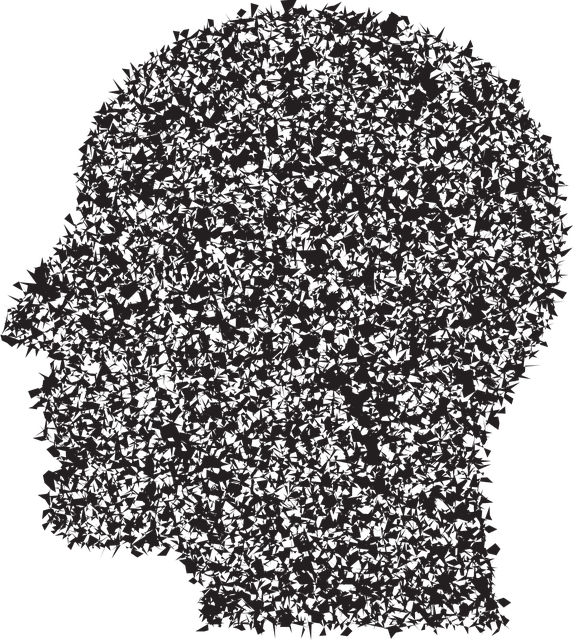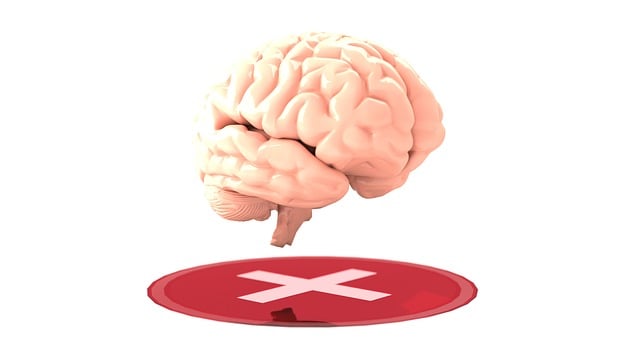Gestalt therapy offers a holistic approach to mental health psychotherapy by viewing individuals as interconnected wholes. Emphasizing present-moment awareness and direct experience, it guides clients to align with their values and aspirations. Through exploring conscious and unconscious patterns, clients gain insights into behaviors and emotions, fostering personal growth and well-being. Key techniques include mindfulness exercises, creative techniques, and uncovering hidden patterns. Client-centered communication, active listening, and reflective techniques enhance emotional awareness and self-reflection. Integration and generalization tools help clients apply learnings to daily life. With emerging research and technological advancements, Gestalt therapy's future in mental health psychotherapy looks promising, offering innovative solutions for effective treatment.
“Dive into the transformative world of Gestalt therapy, a holistic approach to mental health that emphasizes the interconnectedness of mind, body, and environment. This article explores key aspects of Gestalt sessions, including the role of perceptual organization, client-centered communication, and mindfulness. Discover how this psychotherapy uncovers hidden patterns, addresses common mental health concerns, and fosters integration between sessions. By the end, you’ll grasp why Gestalt therapy is a game-changer in modern mental wellness.”
Understanding Gestalt Therapy: A Holistic Approach to Mental Health

Gestalt therapy takes a holistic approach to mental health, viewing each individual as an interconnected whole rather than a sum of their parts. This therapeutic method emphasizes the present moment and the person’s direct experience, encouraging them to live in accord with their values and aspirations. By bringing awareness to conscious and unconscious patterns, clients can gain insights into their behaviors and emotions, fostering personal growth and well-being.
In Gestalt therapy sessions, psychotherapists help individuals explore their feelings, thoughts, and behaviors in a supportive environment. Through dialogue, mindfulness exercises, and creative techniques, clients are guided to identify and challenge limiting beliefs and patterns that may be hindering their mental health. This process facilitates a deeper understanding of oneself, promotes emotional regulation, and enables individuals to make meaningful changes in their lives.
The Role of Perceptual Organization in Gestalt Sessions

In Gestalt therapy sessions, perceptual organization plays a pivotal role in fostering mental health and well-being through psychotherapy. This therapeutic approach emphasizes the interconnectedness of our perceptions, thoughts, and behaviors, aiming to help individuals gain deeper insights into their emotional experiences. During sessions, therapists guide clients to become more aware of how they organize sensory information, enabling them to identify and challenge unhelpful patterns that may be contributing to psychological distress.
By facilitating a client’s ability to perceive and interpret their environment more effectively, Gestalt therapy empowers individuals to make meaningful changes in their lives. This process involves exploring how past experiences shape current perceptions, as well as developing new, healthier ways of interacting with the world. Ultimately, perceptual organization becomes a powerful tool for clients to enhance self-awareness, resolve internal conflicts, and achieve a greater sense of balance and contentment in their mental health journey.
Client-Centred Communication: Key Techniques in Gestalt Psychotherapy

In client-centred communication, Gestalt psychotherapy places a strong emphasis on active listening and non-verbal cues to foster understanding and emotional awareness. Therapists are trained to reflect back what they observe in their clients, encouraging self-reflection and insight. This involves mirroring the client’s language, tone, and body language, while also acknowledging their feelings without judgment. Such reflective techniques help clients gain new perspectives on their experiences and emotions, promoting personal growth and healing.
Gestalt therapy sessions often employ open-ended questions to engage clients in exploring their thoughts and feelings. Therapists avoid giving direct advice or interpreting the client’s experiences for them, instead guiding them to discover solutions through introspection. This approach empowers individuals to take ownership of their mental health journey, fostering a deeper sense of self-awareness and agency.
Uncovering Hidden Patterns: How Gestalt Helps Identify Maladaptive Behaviours

In Gestalt therapy sessions, a powerful technique used to improve mental health and psychotherapy is uncovering hidden patterns. This involves carefully observing a client’s behavior, speech, and non-verbal cues to identify recurring themes and maladaptive behaviors that may not be immediately apparent. By focusing on the whole person—mind, body, and spirit—Gestalt therapy helps individuals become more aware of their subconscious reactions and emotional triggers.
Through this process, clients can gain valuable insights into their thought patterns and behavioral responses, enabling them to challenge and modify maladaptive behaviors that may be hindering their mental well-being. By bringing these hidden dynamics into conscious awareness, Gestalt therapy fosters personal growth, self-acceptance, and healthier ways of interacting with the world.
Mindfulness and Awareness: Core Principles for Effective Gestalt Therapy

In Gestalt therapy sessions, mindfulness and awareness are central principles that empower individuals to understand and transform their experiences. This therapeutic approach emphasizes living in the present moment, fostering a deep connection between thoughts, feelings, and behaviors. By cultivating mindfulness, clients can gain profound insights into their mental health issues, such as anxiety or depression, allowing them to address underlying patterns and beliefs.
Awareness becomes a tool for self-reflection and personal growth when individuals become attuned to their sensory experiences, emotions, and thoughts without judgment. This heightened awareness enables clients to recognize the moment when they might be caught in maladaptive behaviors or cognitive distortions, providing an opportunity to make conscious choices that support better mental health and well-being.
The Therapeutic Environment: Creating Safety and Trust in Session

In Gestalt therapy sessions, creating a safe and trusting environment is paramount for effective treatment. The therapeutic space should foster openness and encourage clients to explore their thoughts and emotions freely. Therapists achieve this by establishing clear boundaries, ensuring confidentiality, and cultivating an atmosphere of non-judgement. This safety net allows individuals to confront and resolve deep-seated issues, fostering personal growth and improved mental health.
The environment plays a crucial role in shaping the therapeutic experience. Through active listening, empathy, and genuine interest, therapists build trust, making clients feel heard and understood. This safe haven facilitates introspection, helping individuals gain new perspectives on their challenges. By addressing these underlying dynamics, Gestalt therapy empowers clients to make meaningful changes, enhancing their overall well-being and resilience in the context of mental health psychotherapy.
Gestalt Approaches to Common Mental Health Concerns

Gestalt therapy offers a unique and effective approach to addressing common mental health concerns, leveraging psychotherapy techniques that encourage individuals to become aware of their present-moment experiences and interactions with the environment. This therapeutic method emphasizes the interconnectedness of thoughts, feelings, and behaviors, promoting a holistic understanding of mental well-being.
Through Gestalt approaches, clients are guided to explore their awareness, identify unhelpful patterns, and develop new strategies for managing symptoms. By focusing on here and now, therapists help individuals gain insights into how past experiences and current situations influence their emotional responses, enabling them to make meaningful changes in their lives. This process facilitates personal growth, enhances self-acceptance, and promotes more adaptive coping mechanisms, ultimately contributing to improved mental health outcomes.
Integration and Generalization: Supporting Clients Between Sessions

In Gestalt therapy, integration and generalization are key concepts aimed at enhancing clients’ well-being between sessions. Integration involves helping individuals make sense of their experiences and emotions from each therapy session, connecting them to their daily lives. This process allows clients to internalize new insights and perspectives gained during psychotherapy, fostering a deeper understanding of themselves and their challenges. By integrating these revelations, clients can begin to apply them in various aspects of their mental health journey.
Generalization, on the other hand, equips clients with the ability to transfer learning from therapy sessions into real-life situations. Through exercises and techniques discussed during Gestalt therapy, individuals learn to navigate their thoughts, feelings, and behaviors more effectively. This enables them to make positive changes not just in therapy, but also outside of it, ultimately improving overall mental health and quality of life.
The Future of Gestalt Therapy: Emerging Research and Applications

The future of Gestalt therapy holds immense potential in the field of mental health psychotherapy. Emerging research continues to uncover the therapeutic benefits of this approach, expanding its applications beyond traditional settings. With advancements in technology, online platforms and digital tools are making Gestalt therapy more accessible, allowing clients to engage in sessions remotely. This accessibility is particularly significant for individuals in remote areas or those facing barriers to in-person treatment.
Furthermore, contemporary research explores the integration of Gestalt techniques with other therapeutic modalities, such as cognitive-behavioural therapy (CBT) and mindfulness practices. These hybrid approaches aim to enhance treatment outcomes by combining the strengths of different schools of thought. As the body of evidence grows, Gestalt therapy is poised to play a vital role in shaping the future of mental health care, offering innovative solutions for individuals seeking effective psychotherapy.
